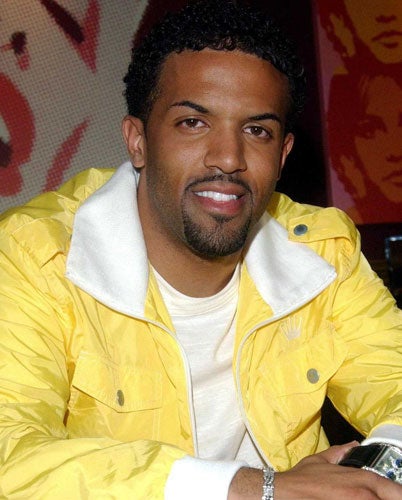How Form 696 could pull the plug on the capital's music scene
Warning sounded over new piece of bureaucracy that forces licensees to reveal a mass of information about performers

Your support helps us to tell the story
From reproductive rights to climate change to Big Tech, The Independent is on the ground when the story is developing. Whether it's investigating the financials of Elon Musk's pro-Trump PAC or producing our latest documentary, 'The A Word', which shines a light on the American women fighting for reproductive rights, we know how important it is to parse out the facts from the messaging.
At such a critical moment in US history, we need reporters on the ground. Your donation allows us to keep sending journalists to speak to both sides of the story.
The Independent is trusted by Americans across the entire political spectrum. And unlike many other quality news outlets, we choose not to lock Americans out of our reporting and analysis with paywalls. We believe quality journalism should be available to everyone, paid for by those who can afford it.
Your support makes all the difference.Teenage kicks will be harder to get if publicans and managers of other small venues are forced to comply with a new piece of bureaucracy called Form 696, a former punk rock star has warned.
The form demands that licensees give police a mass of detail, including the names, aliases, private addresses and phone numbers of all musicians and other performers appearing at their venue, and the ethnic background of the likely audience. Failure to comply could mean the loss of a licence or even a fine and imprisonment.
The police say they need the information demanded on Form 696, which runs to eight pages, so they can pinpoint which acts and venues attract troublemakers, and make sure venues are safe. But Feargal Sharkey, who rose to fame during the punk era as the vocalist on the single "Teenage Kicks" by the Undertones, is so angry about what he sees as a threat to live music that he is consulting lawyers about how to stop it.
As the boss of UK Music, which campaigns for musicians, he will be applying next week for a judicial review into whether a local authority has the right to make it a condition of a publican's licence that they have to fill in Form 696. The scheme was introduced by the Metropolitan Police after incidents at live music concerts in 2006, some involving guns. In theory, it applies to any licensed premises where there is live entertainment, but Detective Chief Superintendent Richard Martin, head of the Met's pubs and vice squad, said that in reality it will apply only to performances likely to draw large crowds.
It applies in 21 London boroughs, but professionals in the music business fear that if it becomes accepted, it will be copied in other cities. Martin Rawlings, director of the Pub and Beer Association, said: "I know of licensees faced with this saying they are just not going to put live music on. Form 696 is being used only in London so far, but there are similar things going on around the country, where the police are asking publicans to sign various protocols. It has gone too far, frankly."
Mr Sharkey has also complained to the Equality and Human Rights Commission that the police appear to be focusing on the music enjoyed by black and Asian teenagers. One of the questions on the form requires the licensee to specify the type of music that will be performed, giving as possible examples "Bashment, R'n'B, Garage". Another question asks, "Is there a particular ethnic group attending?"
In a letter to Sir Ian Blair, the Met commissioner, Mr Sharkey said: "In explicitly singling out performances and musical styles favoured by the black community we believe the use of Risk Assessment Form 696 is disproportionate, unacceptable and damaging to live music."
The Musicians' Union is also consulting lawyers, because they believe that performers' privacy is being invaded. Rick Finlay, 49, who has been playing drums in London venues for 30 years, warned that even if licensees agree to fill in Form 696, musicians may not co-operate. "I would be pretty angry about it, and I can tell you some of my colleagues would refuse to work with me rather than give their details," he said. "The last thing they need is a deterrent, which implies that there is something wrong with what they are doing."
But Det Ch Supt Martin said Form 696 was already making live music in large venues safer. "It's not about being risk averse, it's about managing the risk," he said. "If you a publican and you are just having some performers to entertain your regular customers, you won't be expected to do a risk assessment. It's for when the performance is being put on to draw people in. We will never assess somebody just on the genre of music they are performing. There is a whole raft of factors that are taken into account."
Join our commenting forum
Join thought-provoking conversations, follow other Independent readers and see their replies
Comments